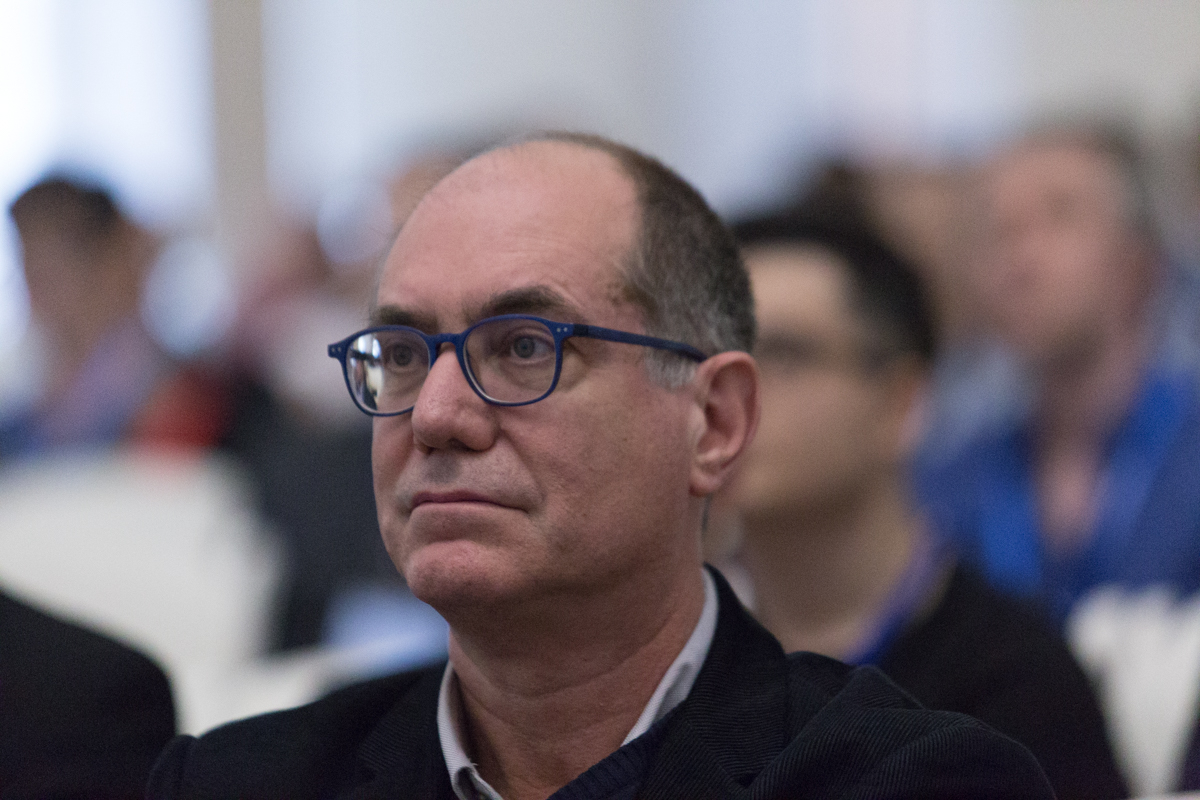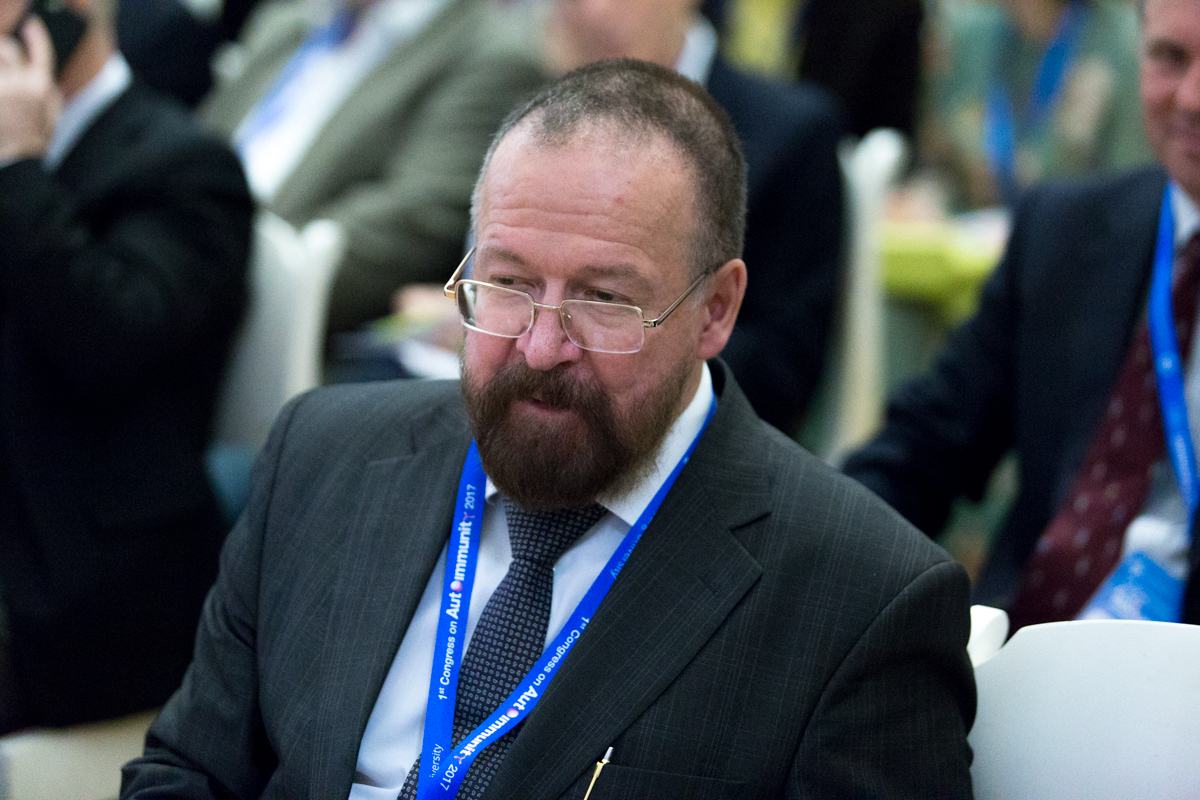Saint Petersburg University discussed what do silicone, smoking, and flights have to do with autoimmune diseases
For the first time in Russia Saint Petersburg University has hosted the International Congress on Autoimmunity under the theme 'The Bridge between East and West' bringing together over 350 attendants from all over the globe. Researchers and clinical experts have dedicated three days to discuss most burning issues, i.e. why smoking can cause rheumatoid arthritis, why weaker immune systems are less prone to autoimmune diseases than stronger ones, or what makes silicone implants dangerous, as well as a range of other issues.
The opening ceremony was anticipated by a traditional science-lunch reception organized by SPbU to welcome the Congress co-chairs Yehuda Shoenfeld, a luminary expert in research, treatment, and prevention of autoimmune diseases and Head of SPbU Laboratory ‘Mosaic of Autoimmunity’, and Leonid Churilov, Head of SPbU Pathology Department and Deputy Director of Mosaic of Autoimmunity Laboratory.
As experts told St. Petersburg media, surprisingly, individuals with a stronger immune system are at high risk of developing autoimmune diseases. Moreover, females are more vulnerable in this respect because by nature their bodies are better trained to counter infections.
'It is like looking at two cars – a racing car and a slow-speed car’, Prof. Shoenfeld explained. ‘If a racing car hits against something at a high speed, damage will be vast, whereas the other car moving at a much lower speed is likely to have no particular damage at all. The same stands true for human immunity: in the course of genetic evolution individuals who have developed stronger immune systems are more prone to autoimmune diseases’.
The expert noted that today one in five people worldwide is suffering from autoimmune diseases, whereas the higher prevalence of those is largely associated with a set of external factors, such as use of aluminum and other adjuvants to stimulate immune response, silicone implants, hormonal contraceptives, and an array of other factors, including night flights. Smoking is a most dangerous factor.
Leonid Churilov explained that ‘smoking induces activation of specific enzymes that are responsible for the formation of citrullinated proteins which behave as powerful autoantigens. They can cause rheumatoid arthritis, a most regular disorder that affects joints and entire human body'. Europe, for example, was presented with first incidents of this disease once it had started to import tobacco from America. Archaeology of human remains that date back thousand years ago supports this fact. Briefly, it is well-established knowledge today that rheumatoid arthritis, as well as lung cancer are caused by smoking.
According to Prof. Yehuda Shoenfeld, lengthy flights and the time zone change (jet lag) syndrome impact the immune system as well. As a result, natural hormone regulation patterns are disrupted. Silicone implants are another high-risk factor; contact between silica gel and neighboring tissues can cause chronical immune system activation. Eventually, individuals can develop both autoimmune diseases and breast lymphoma, Prof. Shoenfeld noted.
The science-lunch was followed by the opening ceremony of the 1st St. Petersburg Congress on Autoimmunity that took place in SPbU Magna Hall and was welcomed by Sergey Aplonov, SPbU Vice-Rector for Research. He highlighted that the Congress promotes Russian scientists to the frontline of global autoimmunology by providing an unparalleled platform to share opinions, knowledge, and expertise. The agenda also included a lecture ‘Music and Pain’ by Prof. Dorit Tanay, Tel Aviv University, a researcher in psychology and music, and rheumatologist Amir Tanay, Zabludowicz Center for Autoimmune Diseases, followed by the performance of piano virtuoso Amir Shoenfeld. In the evening Yehuda Shoenfeld delivered his lecture on key causes and mechanisms of autoimmune diseases. All the Congress participants received 'Autoimmune Diseases Guidelines for General Practitioners' developed by a panel of experts from 15 countries, including SPbU scientists.
General Information:
The 1st Congress on Autoimmunity in Russia was held at Saint Petersburg University, a most prominent research and educational establishment in the city bringing together over a hundred research laboratories. A winner of the prestigious Russian Government MegaGrant in Clinical Medicine, the University used the funds to establish a mosaic of autoimmunity laboratory in December 2016 lead by Yehuda Shoenfeld, a luminary expert in research, treatment, and prevention of autoimmune diseases.
Today biomedicine and human health have top strategic positions for SPbU; to this end, the University is actively developing its research centers led by outstanding scientists from Russia and other countries. These centers include the Institute of Translational Biomedicine, the Center for Genome Bioinformatics, the Center for Algorithmic Biotechnology, Center Biobank and many others.




